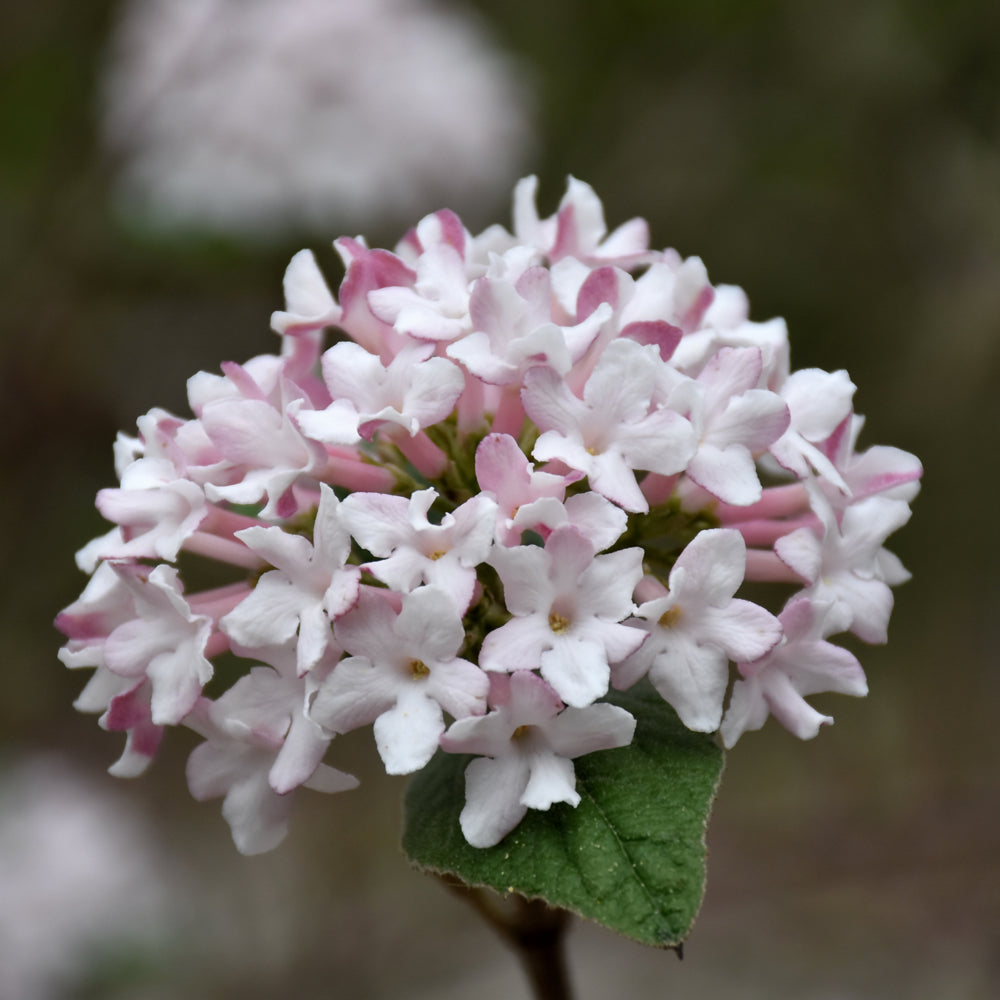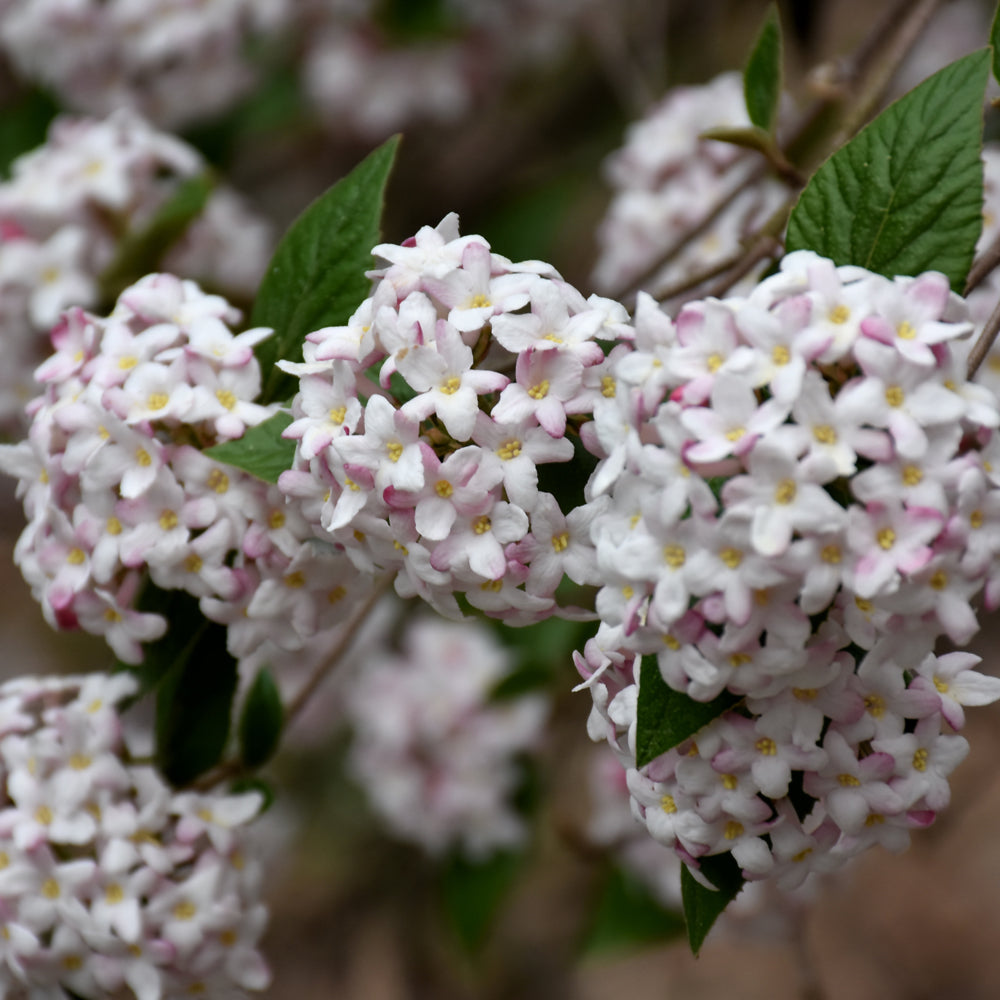Spice Baby™ Koreanspice Viburnum
Spice Baby™ Koreanspice Viburnum
|
|
Browse More Plants |
Shipping for other products is calculated at checkout.
Couldn't load pickup availability
Botanic Name: Viburnum carlesii 'SMVCB'
Description: An attractive selection, covered in intoxicatingly sweet-smelling ball-shaped clusters of white blooms from rose pink buds; plant where the fragrance can be enjoyed; tidy the rest of the year; makes a beautiful accent specimen or hedge
Landscaping Attributes
Landscaping Attributes
Spice Baby™ Koreanspice Viburnum is a dense multi-stemmed deciduous shrub with an upright spreading habit of growth. Its average texture blends into the landscape, but can be balanced by one or two finer or coarser trees or shrubs for an effective composition.
This is a relatively low maintenance shrub, and should only be pruned after flowering to avoid removing any of the current season's flowers. It is a good choice for attracting birds to your yard, but is not particularly attractive to deer who tend to leave it alone in favor of tastier treats. It has no significant negative characteristics.
Spice Baby™ Koreanspice Viburnum is recommended for the following landscape applications;
Accent, Mass Planting, Hedges/Screening, General Garden Use
Ornamental Features
Ornamental Features
Spice Baby™ Koreanspice Viburnum is smothered in stunning balls of fragrant white flowers with buttery yellow eyes at the ends of the branches from early to late spring, which emerge from distinctive rose flower buds. It has green deciduous foliage. The heart-shaped leaves turn an outstanding red in the fall. The black fruits are held in clusters from late summer to late fall.
Planting & Growing Tips
Planting & Growing Tips
Spice Baby™ Koreanspice Viburnum will grow to be about 5 feet tall at maturity, with a spread of 5 feet. It tends to be a little leggy, with a typical clearance of 1 foot from the ground, and is suitable for planting under power lines. It grows at a slow rate, and under ideal conditions can be expected to live for 40 years or more. This variety requires a different selection of the same species growing nearby in order to set fruit.
This shrub does best in full sun to partial shade. It prefers to grow in average to moist conditions, and shouldn't be allowed to dry out. It is not particular as to soil type or pH. It is somewhat tolerant of urban pollution. This is a selected variety of a species not originally from North America.
More Info...
More Info...
Hardiness Zone: 4
Sunlight: Full Sun To Partial Shade
Height: 5 feet
Spread: 5 feet
Photo Credits: NetPS Plant Finder
Share




